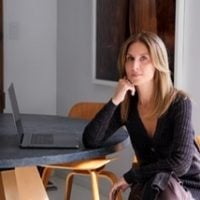Trust wasn’t something I thought much about until I no longer had it.
I guess I’d taken my trust for granted. I knew that it could be broken or gained, but I hadn’t realized it can slowly dissipate, little by little, quietly.
And, I never imagined that at any moment my entire being could be upended by its absence, either.
Shaking, heart pounding, and clutching the steering wheel one morning was how I came to find I’d lost complete trust in myself.
Sure, I had a recent car accident and this, they said, was to be expected. I was assured it would take time to get back in the saddle. The horse analogy, though, never felt right. I mean, this wasn’t the first time I’d fallen from a horse. I’ve dusted up and cleaned myself off plenty in this lifetime.
The frenzy of panic that had invaded my body, blurred my vision, and had me helpless at the wheel was radically different.
My lack of faith began to spill over into other areas of my life. I didn’t feel safe wherever I went or whomever I was with. This didn’t feel like a matter of simply getting back on a horse, faking it until I made it, or flooding myself with scary stimuli. Although, I did try all those suggested remedies.
Still, deep down, I couldn’t say, “I got me,” to myself.
According to the influential developmental psychologist, Erik Erikson, during our first year of life, we experience a conflict: “trust versus mistrust.” He explains that the manner in which we are cared for by our parent or caregiver during infancy to toddlerhood affects our physical and mental health.
Erikson suggests that in our dependence, the questioning of trust begins: “can I trust the people around me?” “Is the world safe?”
We draw conclusions, form assessments, and develop emotionally, either negatively or positively in relation. Ideally and typically, the conflict is resolved by the time we reach 18 months, and we’ve acquired sufficient coping skills to move on to the next stage of our development.
Many rely upon their early conditioning and those same coping strategies as they mature; at times unaware that these may be outdated and unreliable. When our trust is challenged later in life, whether it’s having been blindsided by our partner’s infidelity, a friend’s dishonesty, or a horrible car crash, we can become emotionally charged and physically reactive based on our history.
Sometimes, it is the accumulation of betrayal, the wear and tear, that will leave us without a cushion to fall back on.
Our trust erodes whenever we lose faith in ourselves or can’t turn to those we love and say, “You got me.” And, it is whenever we’re left doubting the collective’s intentions, feel misaligned with our neighbors and communities, and believe there is no source for us to turn to in need.
It is a crisis of faith, in a sense.
I’ve come to know trust in four ways:
>> I got me: the one that says I believe in myself.
>> You got me: which says I can rely on those I love.
>> We have each other: which says I’m a vital part of my community.
>> The universe has me covered: which says a higher power is available for me.
Each a pillar for our happiness, safety, and overall well-being.
During those fear-filled days after my car accident, I’d become preoccupied with the first three pillars. I was shamefully disappointed with myself. I worried I would make the same horrible mistake again. I questioned the other drivers on the road and the recklessness I witnessed.
And the world felt especially unkind and unforgiving.
I completely forgot about my connection to the universe. I lost sight that we are all connected to something larger than ourselves—nature, source, a higher power, art, angels, cosmos.
We can all remember a time when we believed the trees swayed in unison, the clouds drew funny pictures, and the wind whispered secrets to us. They still do, even if we choose to listen to logic and reasoning instead.
It’s easy to believe we are alone in our troubles. We are taught to have faith only in what we can control. We aren’t conditioned to trust for the sake of trusting or to surrender to fate.
But the truth is awful: sh*t happens, and it may not be of our own doing.
It could very well be that every panic attack, every checked-out, disloyal partner, and every untrustworthy friend is there to wisen us, open us up, and prepare us for what lies ahead.
What if the universe is saying it’s time to let go of our rigidity, our old habits, and walk away from all the denial?
Maybe, the universe is reminding us that we have everything we need inside of us to take care of ourselves—that we aren’t smaller or weaker than any of our fears.
The universe may in fact be telling us that no matter who or what has let us down, it has us covered.
By understanding that there is an essence of trust, I began to heal. I asked myself: why wasn’t I deserving of this trust? Why did I believe the universe had forgotten me?
I had to listen to my fears, acknowledge the old stories, and then set course on a new way of being with myself.
Some say trust is learning how to be our own best friend. But I feel it’s becoming our own mother too. We can learn to catch our own breath, listen to our own soft voices, and let ourselves fall backward into the arms of the universe.
~


 Share on bsky
Share on bsky





Read 27 comments and reply